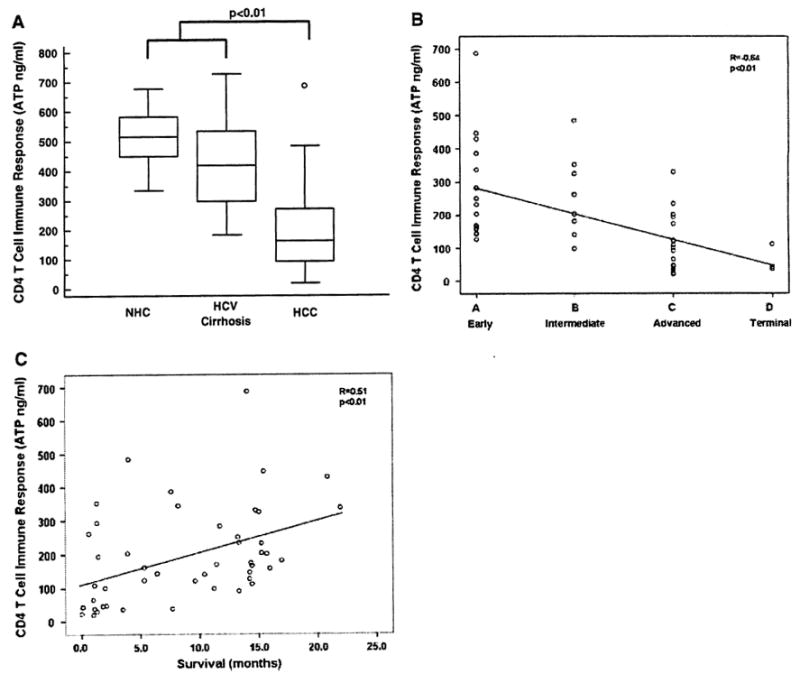Fig. 1.

Impaired CD4 effector T cell responses in hepatocellular carcinoma (HCC). a Comparison of baseline (pretreatment) ex vivo general CD4 T cell responses for HCC patients (n = 60), age/sex matched normal controls (NHC, n = 20) and patients with HCV related cirrhosis (n = 20) using the ImmuKnow™ in vitro ATP based activity assay (Cylex®). CD4 T cell responses (ng/ml) for all three study groups are represented by the box-and-whisker plot. The horizontal lines illustrate the 25th, 50th, and 75th percentiles of the CD4 T cell reactivity. The vertical lines represent the 10th and 90th percentiles and the circles represent values outside these percentiles. In general, HCC patients showed statistically significantly lower general CD4 T cell responses when compared to HCV patients with cirrhosis and NHC (P < 0.01). b There was a significant negative correlation between general CD4 T cell responses and tumor stage as defined with the Barcelona clinic liver cancer (BCLQ staging classification (R = −0.64; P < 0.01). Patients with advanced HCC (stage C) and terminal HCC (stage D) had significantly lower CD4 T cell reactivity in contrast to patients with localized HCC (stage A and B) which showed higher levels of CD4 T cell responses, c A direct correlation was found between CD4 T cell responses and survival (R = 0.51, P< 0.01)
